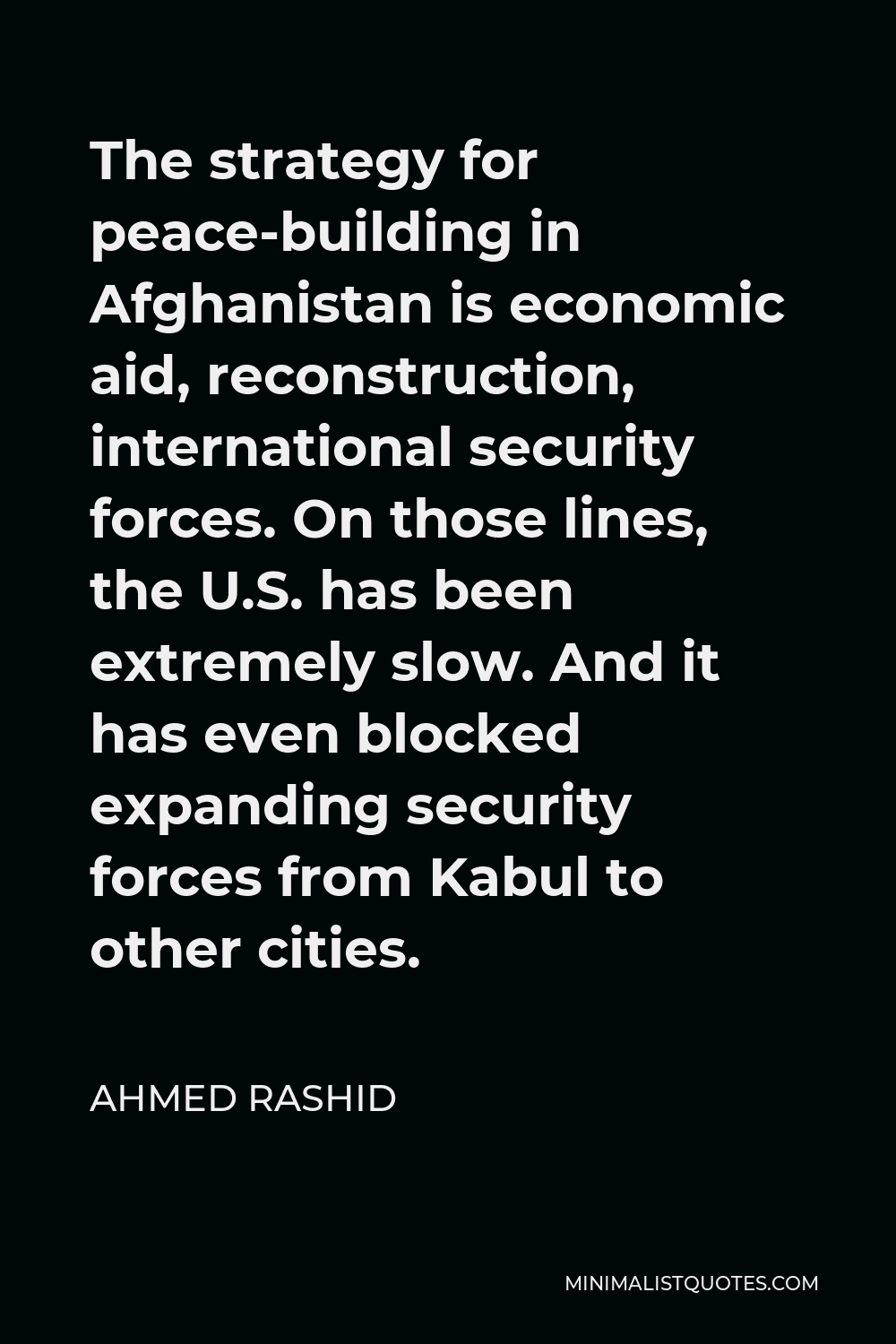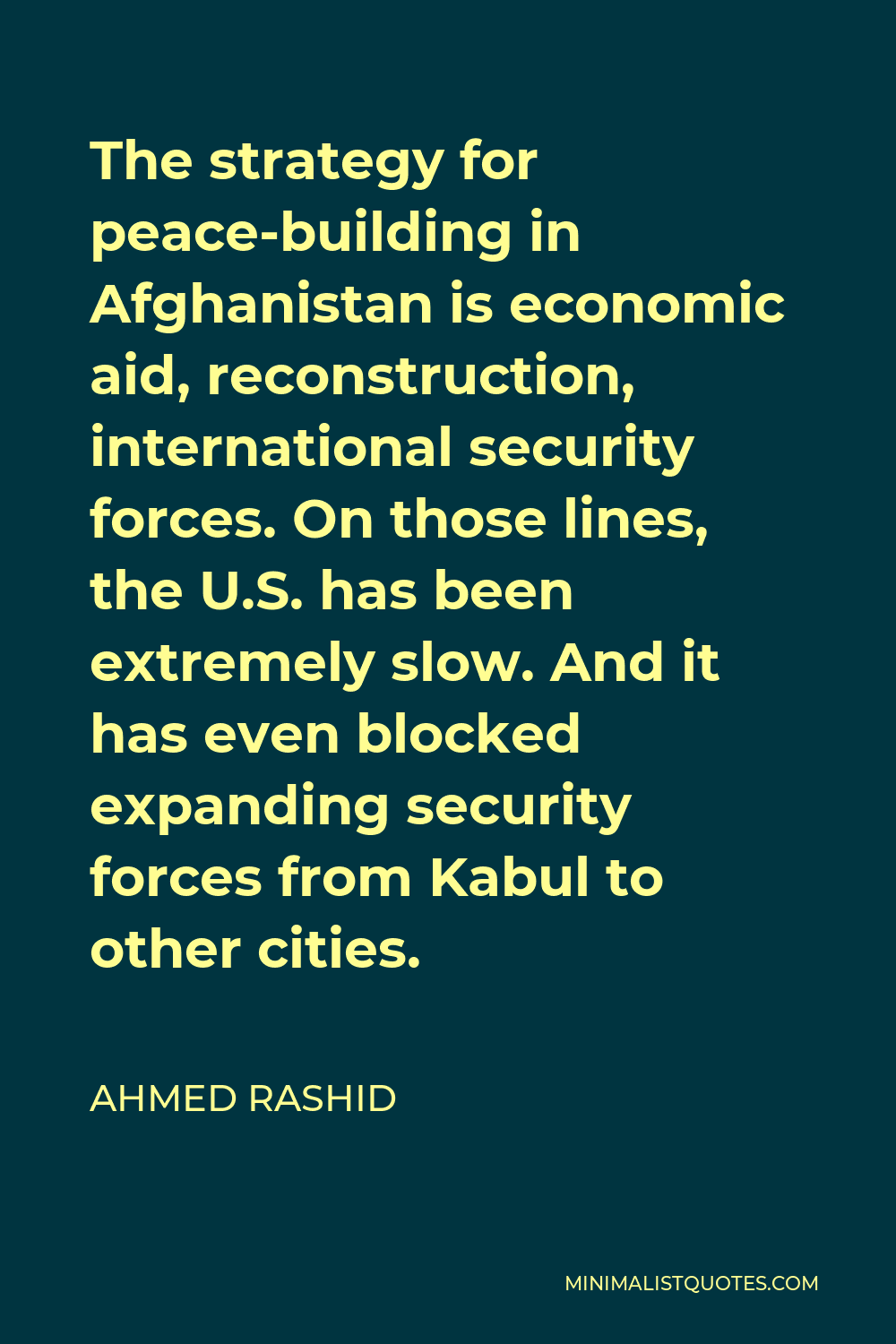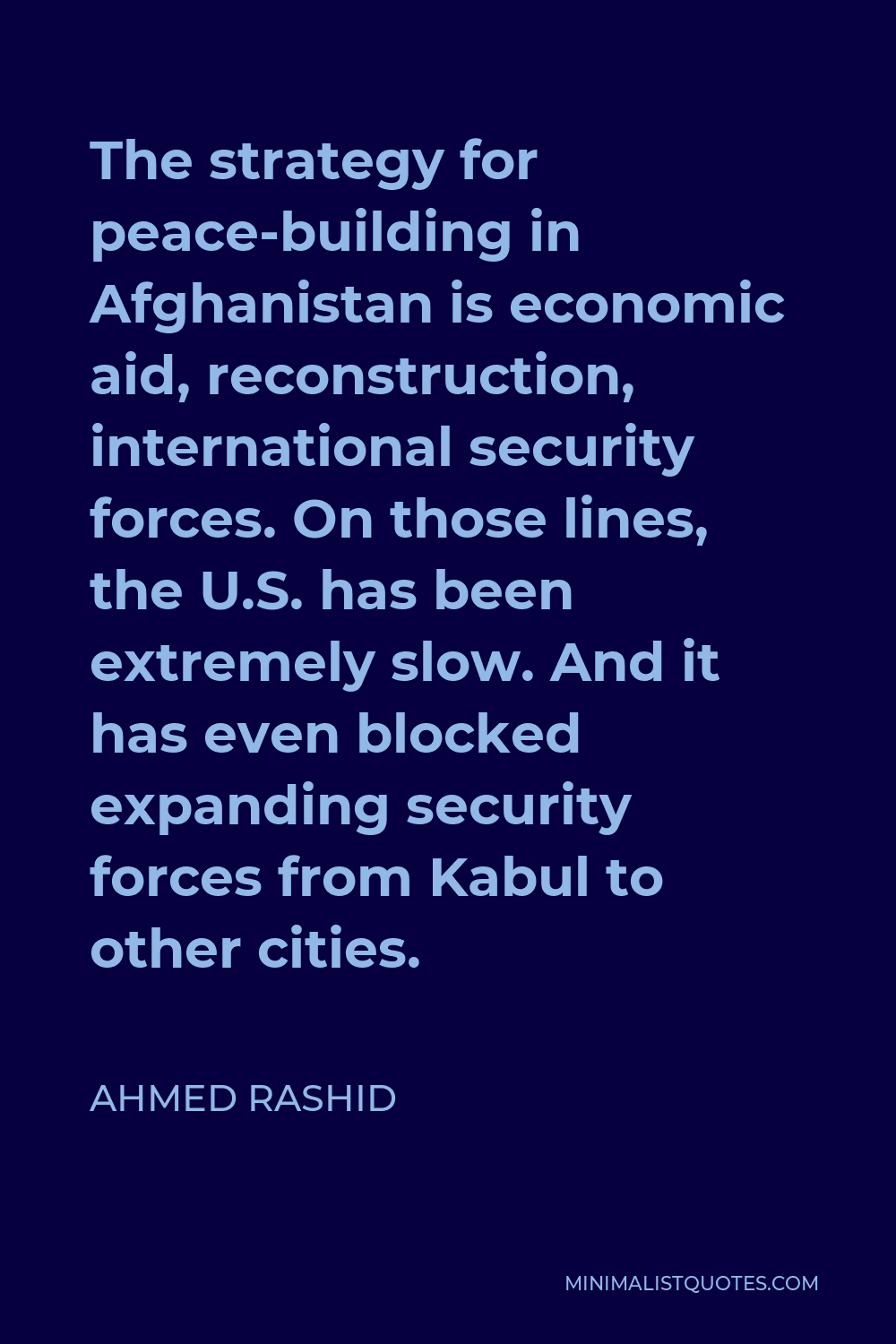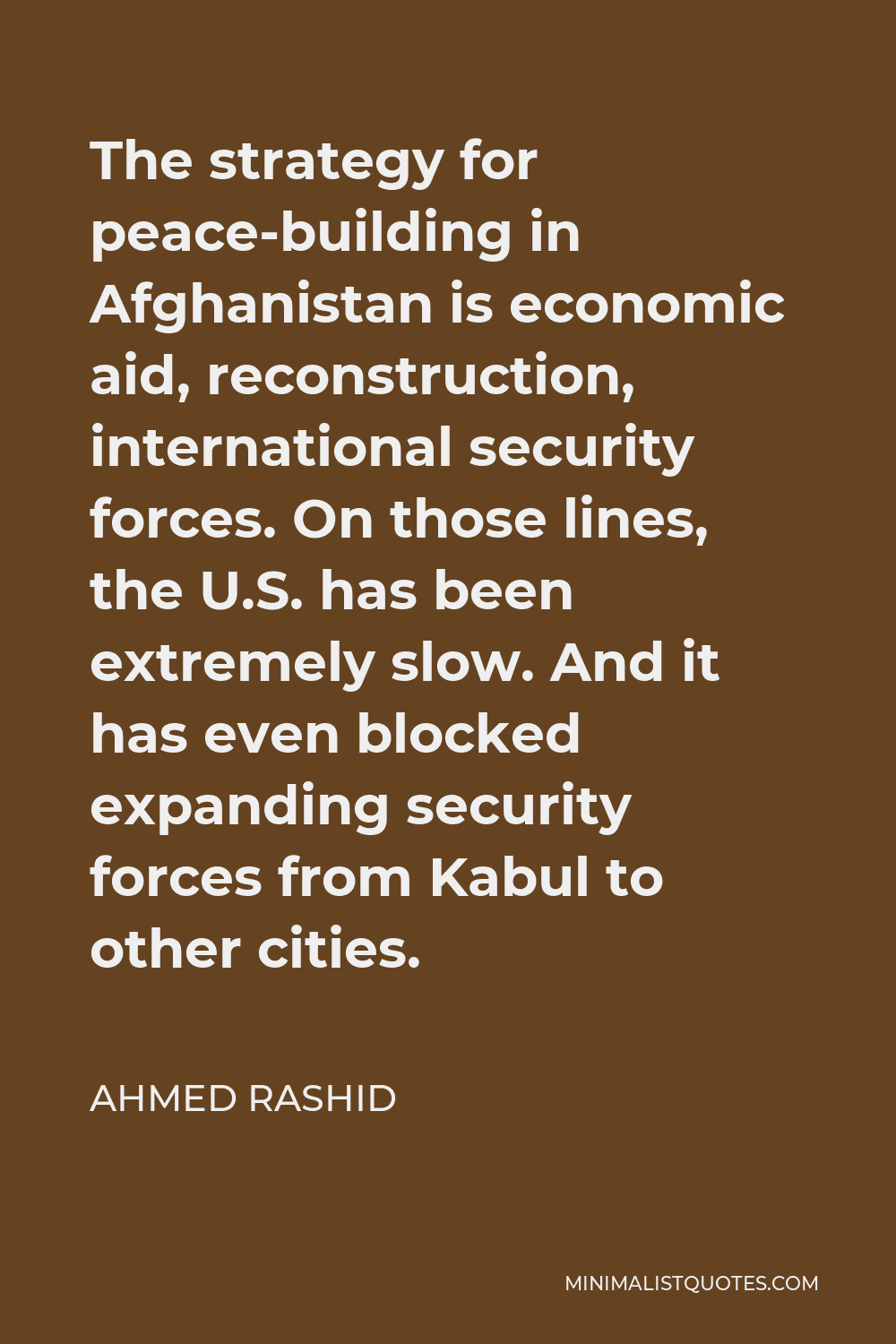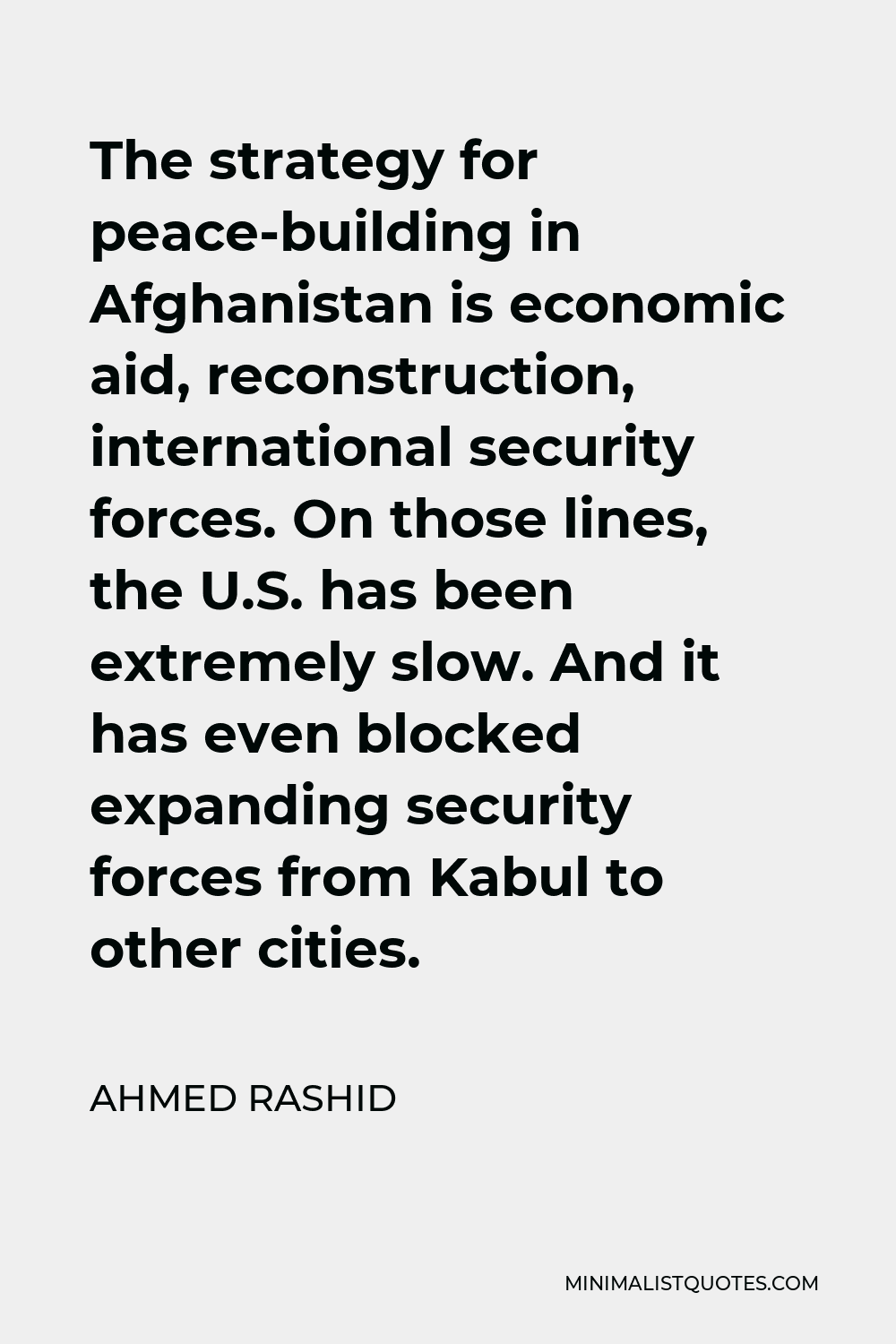If Afghan soldiers continue to kill American soldiers as is happening these days, it can hardly be assumed that they will stay in Afghanistan in the long term. And what role are they to play?
AHMED RASHIDThe strategy for peace-building in Afghanistan is economic aid, reconstruction, international security forces. On those lines, the U.S. has been extremely slow. And it has even blocked expanding security forces from Kabul to other cities.
More Ahmed Rashid Quotes
-





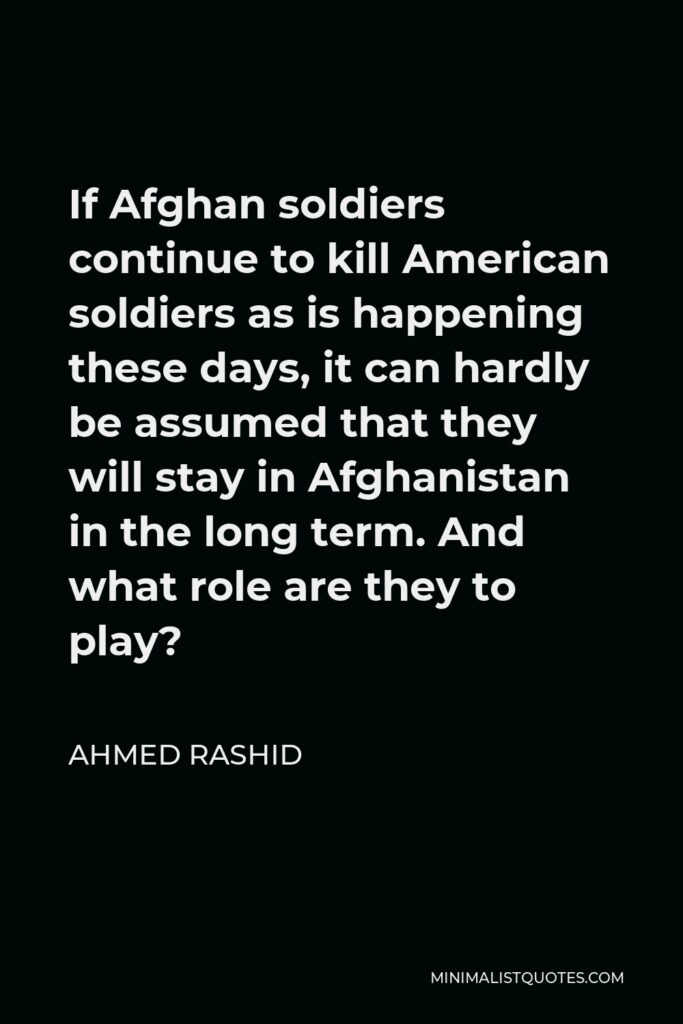

-





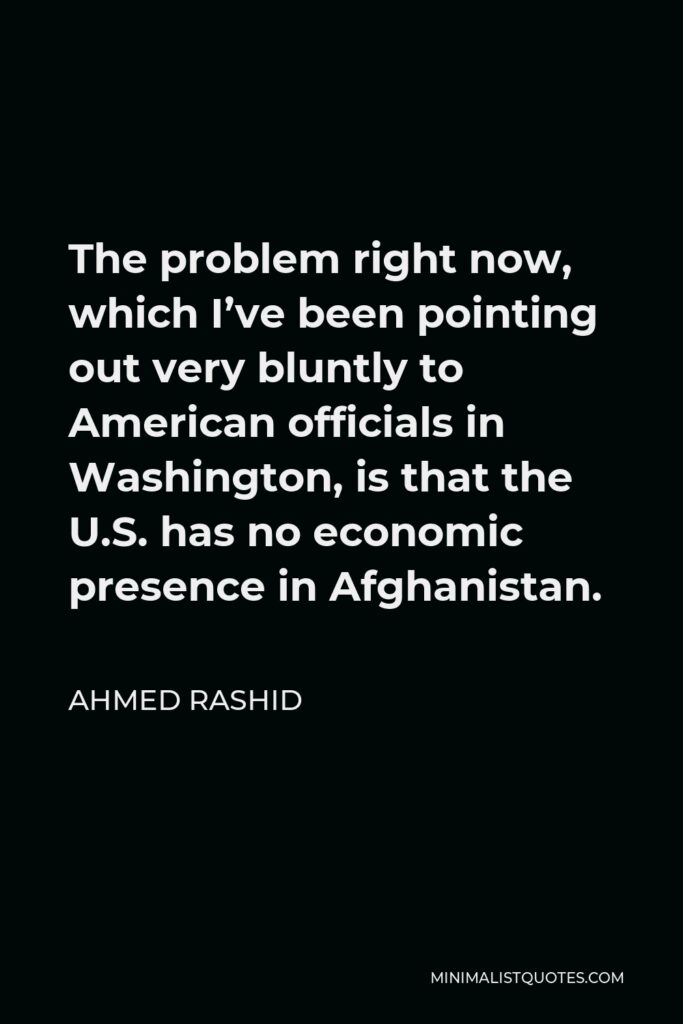

The problem right now, which I’ve been pointing out very bluntly to American officials in Washington, is that the U.S. has no economic presence in Afghanistan.
AHMED RASHID -





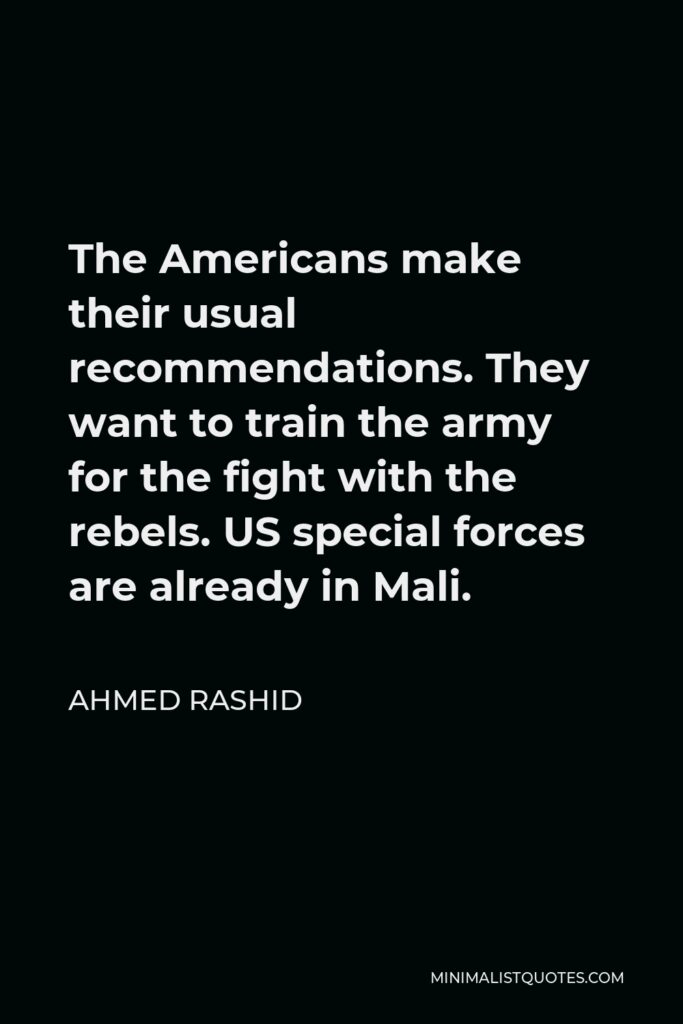

The Americans make their usual recommendations. They want to train the army for the fight with the rebels. US special forces are already in Mali.
AHMED RASHID -





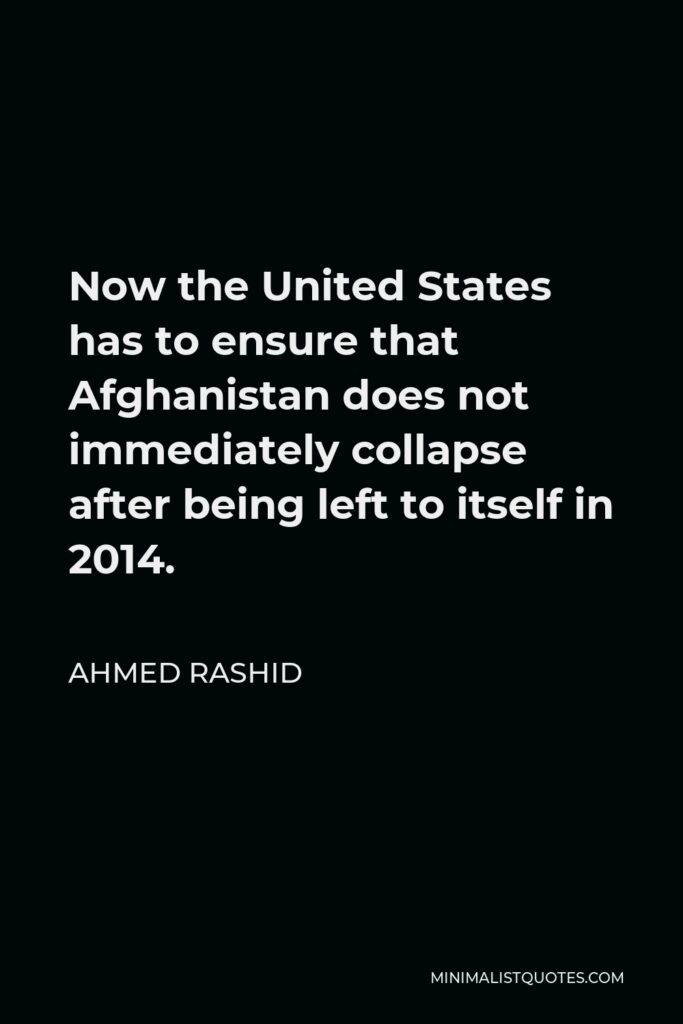

Now the United States has to ensure that Afghanistan does not immediately collapse after being left to itself in 2014.
AHMED RASHID -





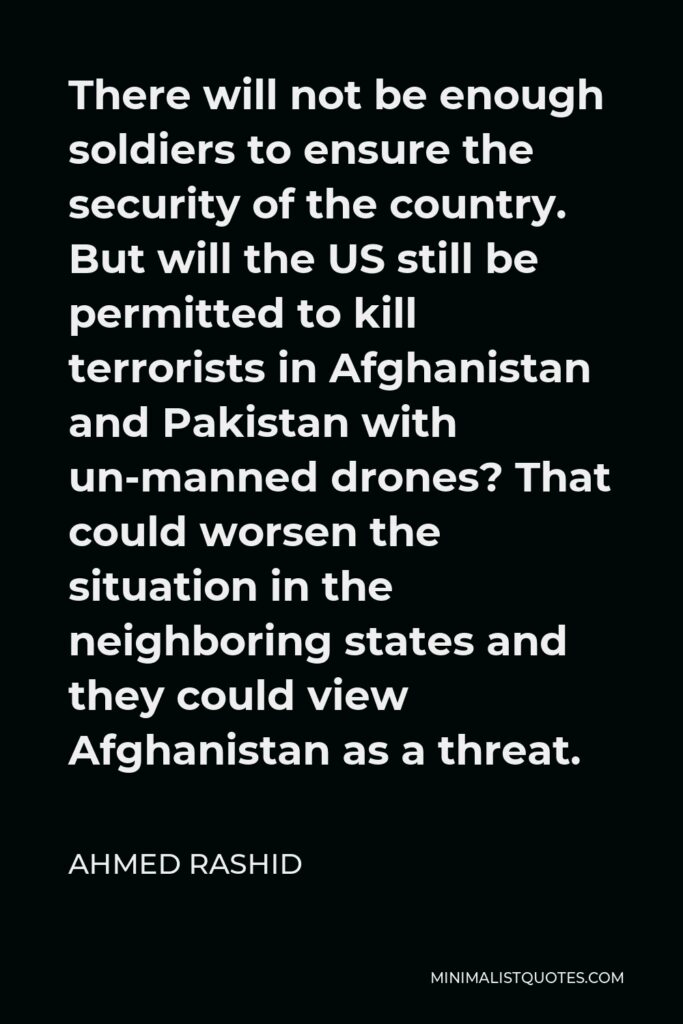

There will not be enough soldiers to ensure the security of the country. But will the US still be permitted to kill terrorists in Afghanistan and Pakistan with un-manned drones? That could worsen the situation in the neighboring states and they could view Afghanistan as a threat.
AHMED RASHID -





![Ahmed Rashid Quote - [Mullah Omar] gave himself this religious title. So it was something that all those people there who swore an oath of loyalty to him as a religious leader could not easily get rid of.](https://minimalistquotes.com/wp-content/uploads/2022/07/mullah-omar-gave-himself-this-religious-title-so-i-683x1024.jpg)

[Mullah Omar] gave himself this religious title. So it was something that all those people there who swore an oath of loyalty to him as a religious leader could not easily get rid of.
AHMED RASHID -







The fact that there are no longer large units of Al Qaeda running around means you don’t need B-52s.
AHMED RASHID -





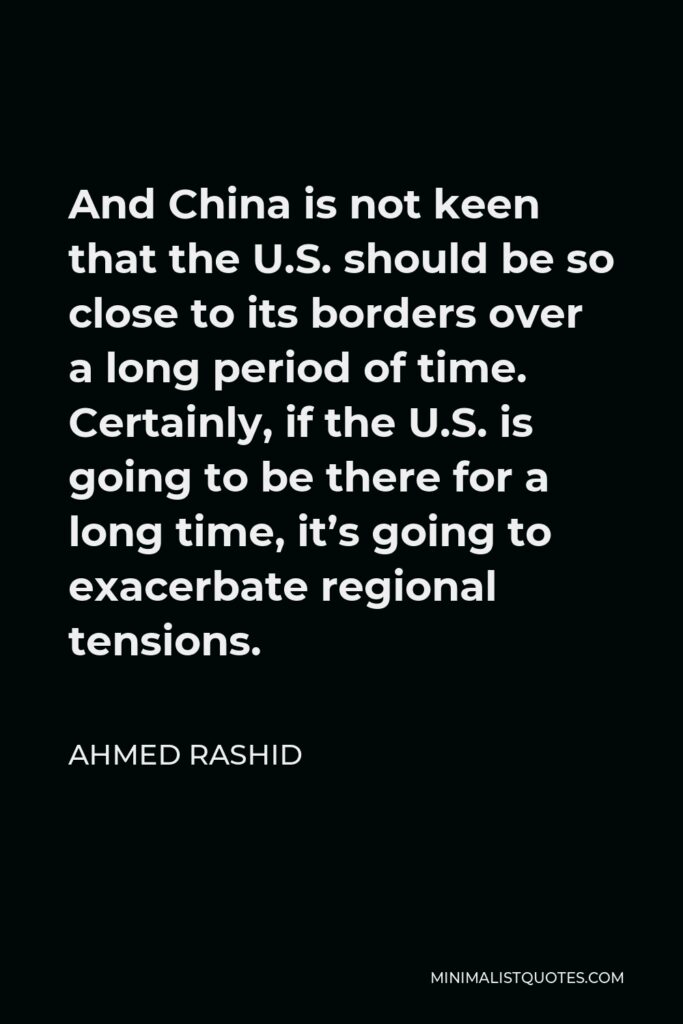

And China is not keen that the U.S. should be so close to its borders over a long period of time. Certainly, if the U.S. is going to be there for a long time, it’s going to exacerbate regional tensions.
AHMED RASHID -





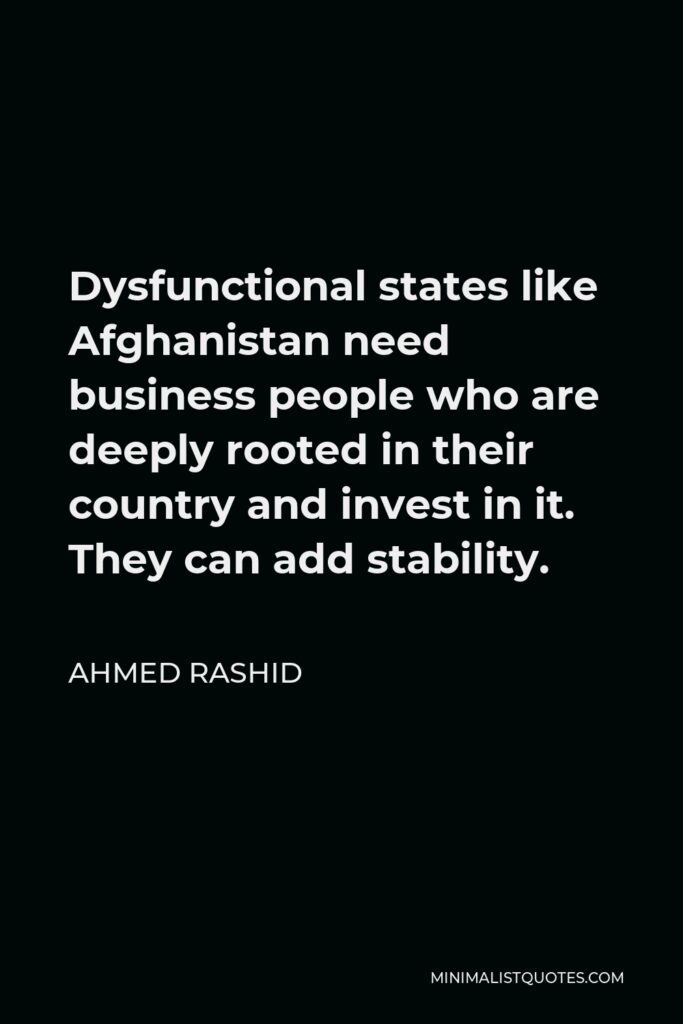

Dysfunctional states like Afghanistan need business people who are deeply rooted in their country and invest in it. They can add stability.
AHMED RASHID -





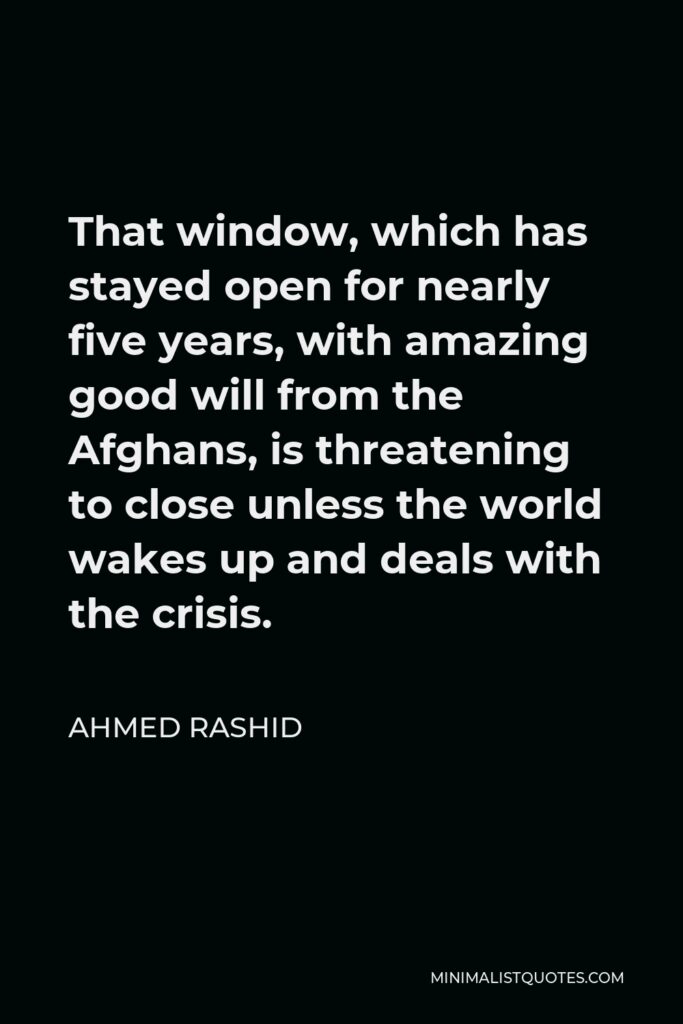

That window, which has stayed open for nearly five years, with amazing good will from the Afghans, is threatening to close unless the world wakes up and deals with the crisis.
AHMED RASHID -





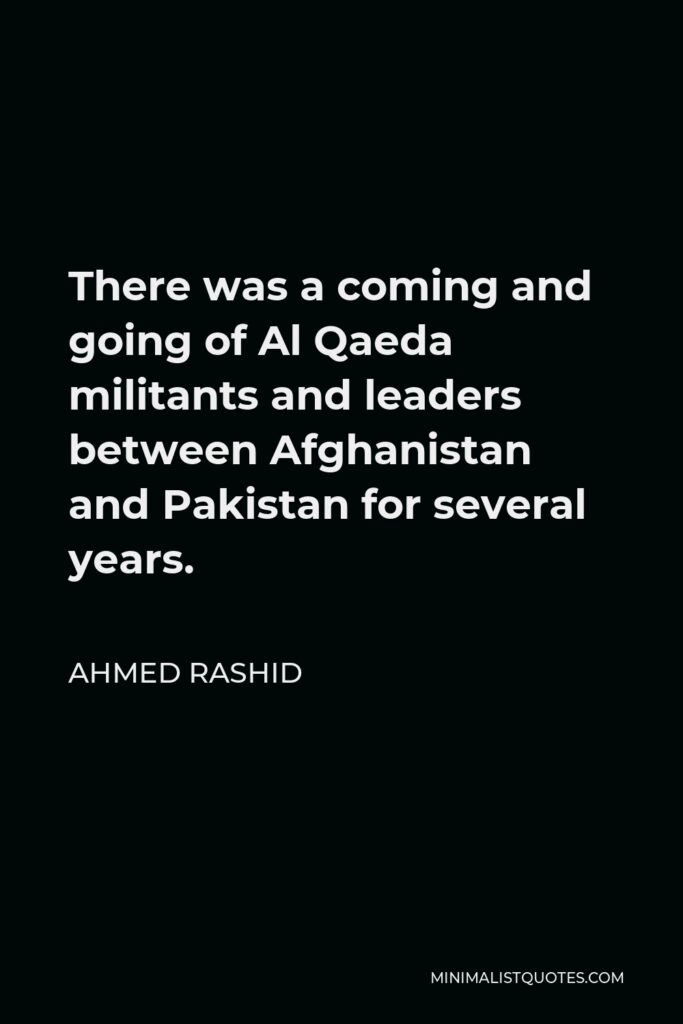

There was a coming and going of Al Qaeda militants and leaders between Afghanistan and Pakistan for several years.
AHMED RASHID -





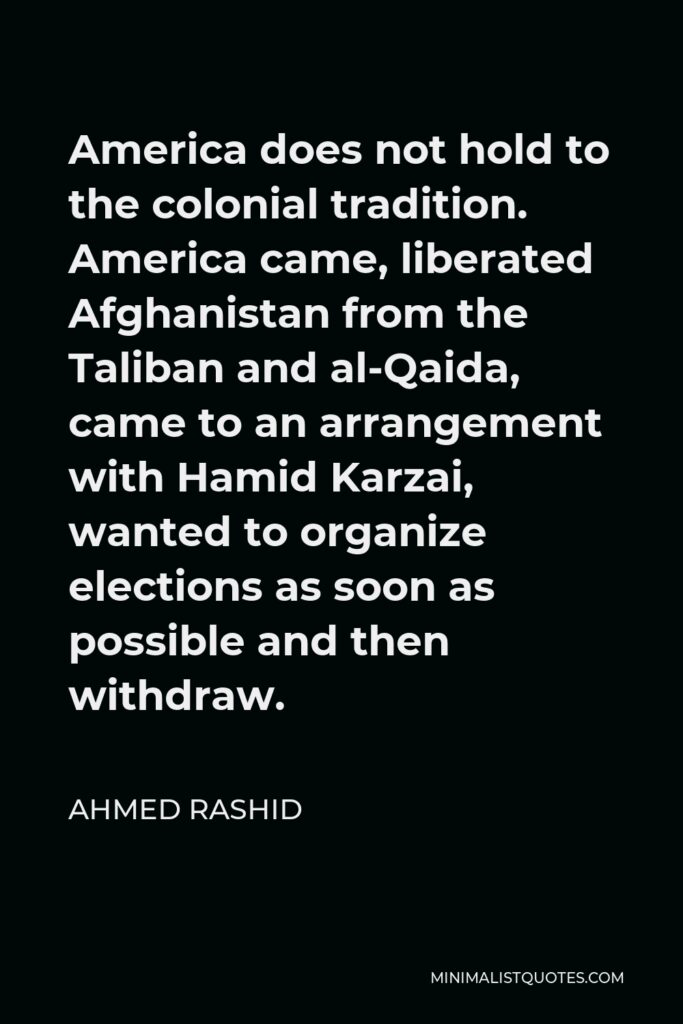

America does not hold to the colonial tradition. America came, liberated Afghanistan from the Taliban and al-Qaida, came to an arrangement with Hamid Karzai, wanted to organize elections as soon as possible and then withdraw.
AHMED RASHID -





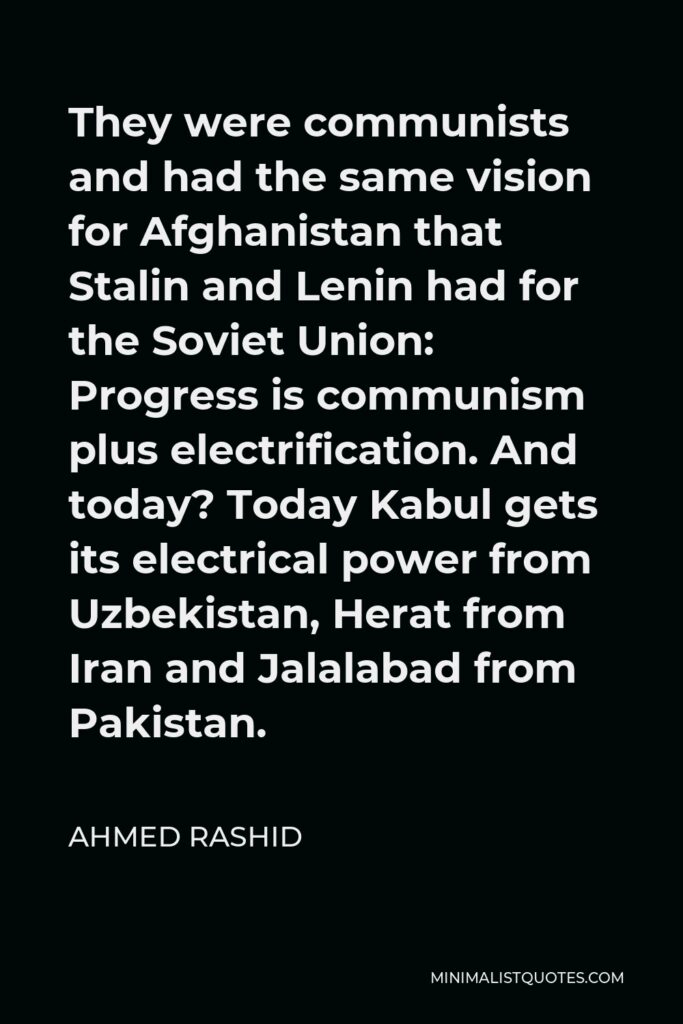

They were communists and had the same vision for Afghanistan that Stalin and Lenin had for the Soviet Union: Progress is communism plus electrification. And today? Today Kabul gets its electrical power from Uzbekistan, Herat from Iran and Jalalabad from Pakistan.
AHMED RASHID -





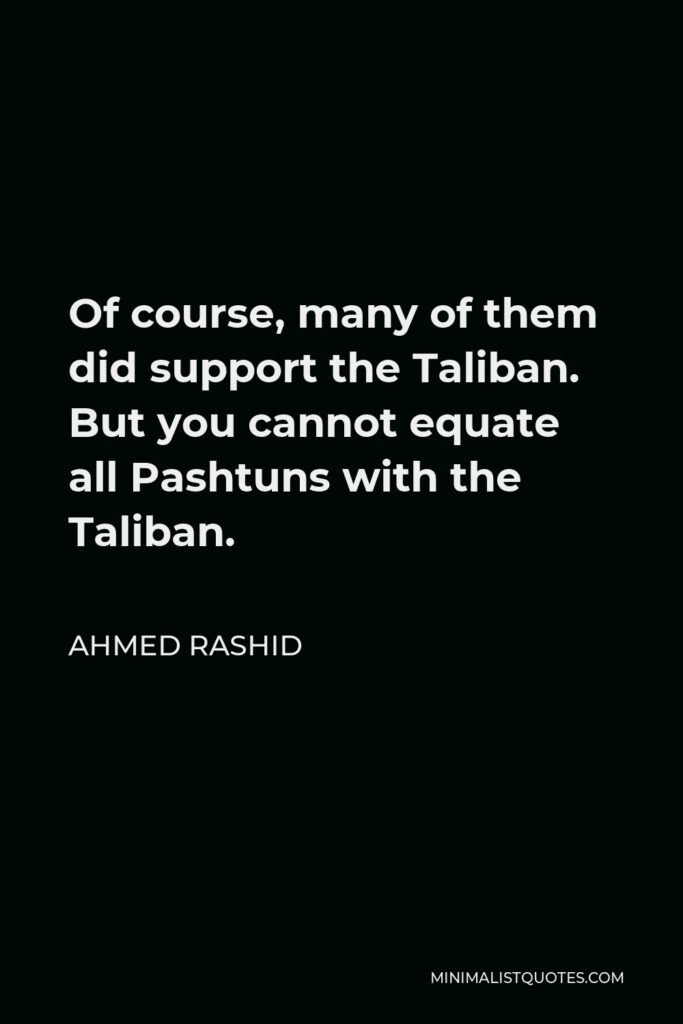

Of course, many of them did support the Taliban. But you cannot equate all Pashtuns with the Taliban.
AHMED RASHID -





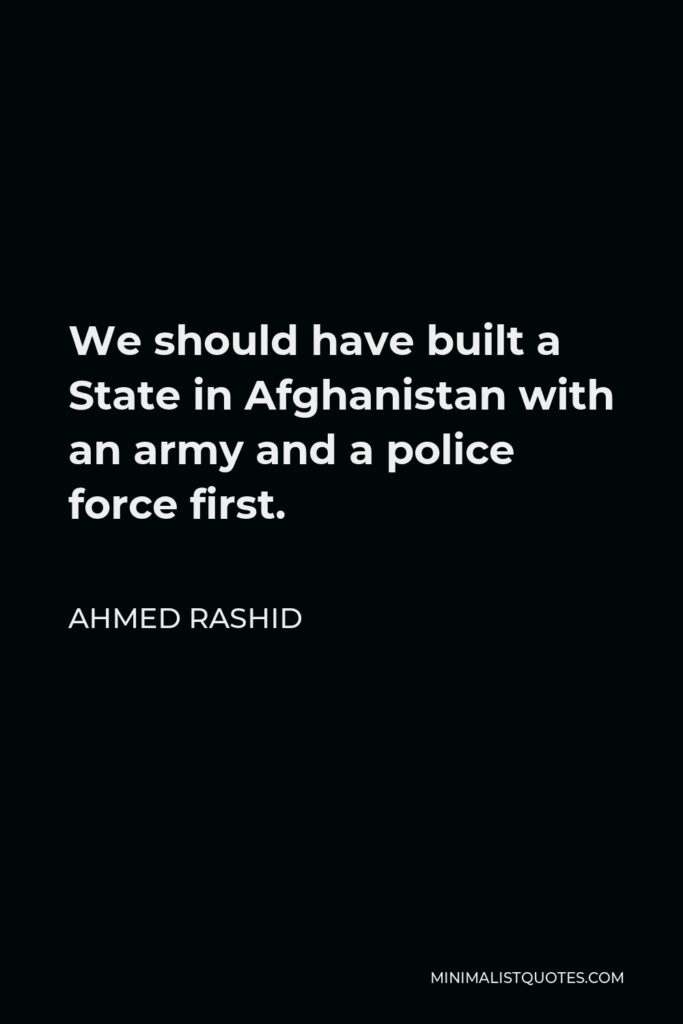

We should have built a State in Afghanistan with an army and a police force first.
AHMED RASHID -





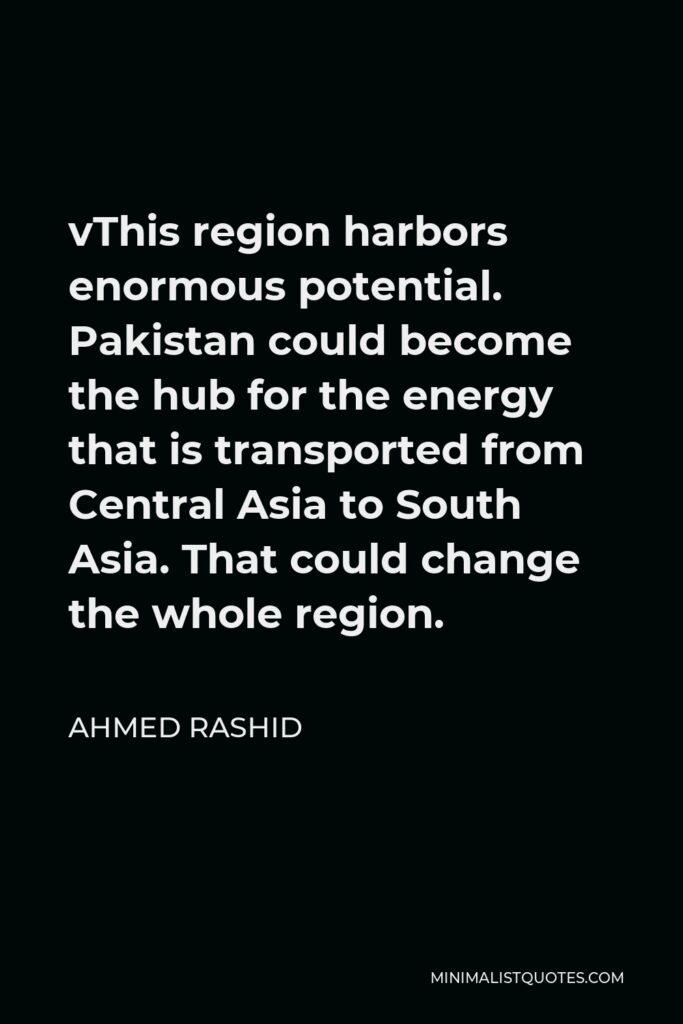

vThis region harbors enormous potential. Pakistan could become the hub for the energy that is transported from Central Asia to South Asia. That could change the whole region.
AHMED RASHID
